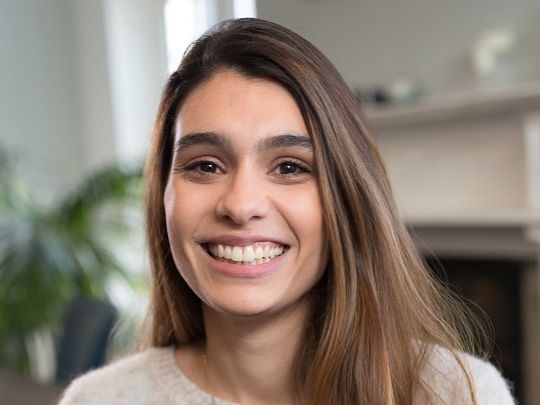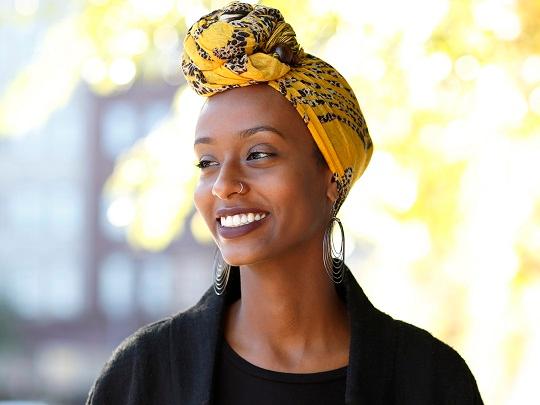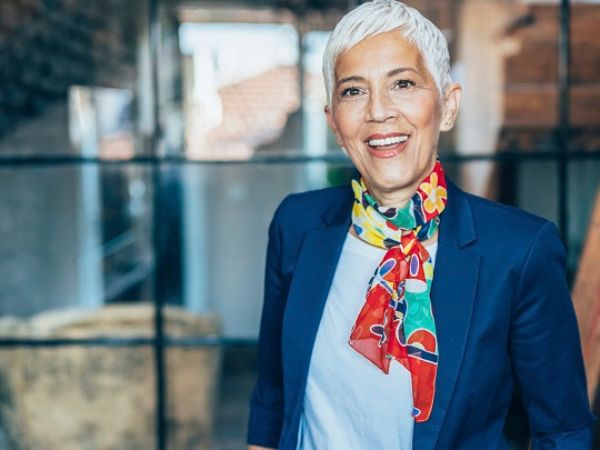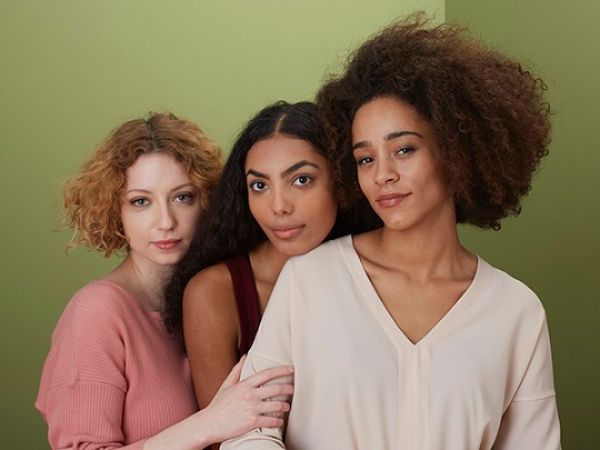Beauty democracy
Calling for accessibility and inclusivity
We believe in inclusive beauty that’s open and accessible to all. We’re here for everyone and we support self-expression by challenging stereotypes.
We’ll continue to provide accessible, quality products at affordable prices, straight from the catwalk to the sidewalk.
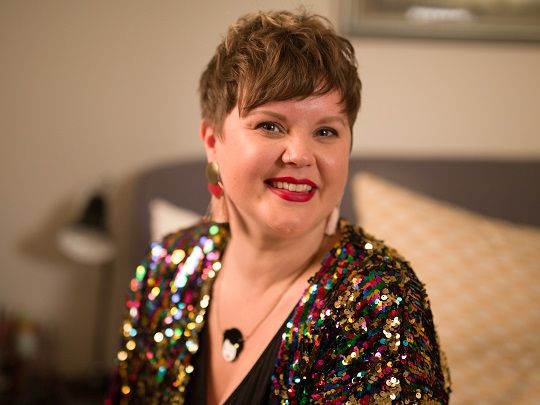
Alice: "'make-up is my arsenal to take on the world"
"My make-up routine is fairly simple and basic but really important in making me feel comfortable and strong.
After my treatment for breast cancer, my eyebrows never grew back, and so the main part of my make-up routine is applying my eyebrows. When I apply my eyebrows, it makes me feel like me again and helps me get back to who I was before cancer.
My signature look is a bright red lip. And even throughout my treatment when I lost my hair and eyebrows I would always put on a bright red lipstick. It would bring me strength and I would feel ready to face anything."
Gemma: “make-up gets me ready to conquer the world”
“When I put my make-up on, I feel complete. It gives me a feeling of power and the confidence to step out into the world.
Although I go for quite natural looks and am comfortable without make-up, I am never without my mascara and it’s definitely on my desert island list!
Make-up is a really powerful tool. Not only can it lift a whole appearance if you’re feeling a bit tired or like you don’t look your best, it can also raise your mood and spirits. The benefits of makeup aren’t just on the outside, they are on the inside as well!”
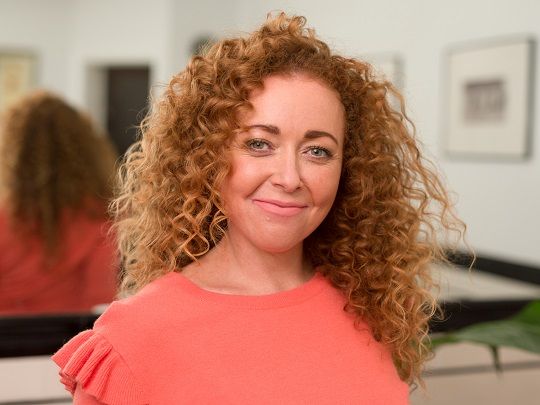
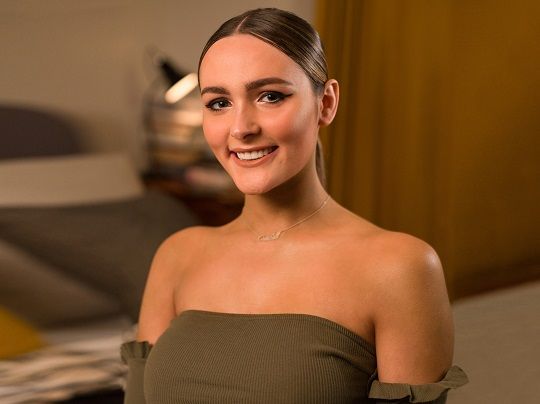
Cambell: “I wear make-up to feel like me”
“When I first started transitioning, make-up was really important for me. It helped me feel like me. I used it to feminise myself and my features to help me express myself and who I was from inside.
I'm known for my highlighter and nude lip; I am never without highlighter and always look glowy. During the day I go for a natural look, but I love to bring it up a few notches at night with a red or purple lip. I love experimenting with make-up and finding new looks.
Feminism for me is being able to do what you want with your life and body. And make-up is one of my tools. Whether we wear makeup or not is up to us and our individual choice as women.”
Gabriela: “there is a feeling of ritual when I put my make-up on”
“It makes me feel more comfortable and worry less about the little imperfections I feel self-conscious about.
Make-up has definitely been something I’ve grown into. I used to put a lot of make up on every day when I was much younger but now prefer a more natural look.
Don’t get me wrong, I still love to dress up and experiment with new looks! When I go out I’ll always put on a red and instantly feel like I’m a different person. I feel more powerful and when I finish applying it, I get that feeling of ‘Let’s do this!’”
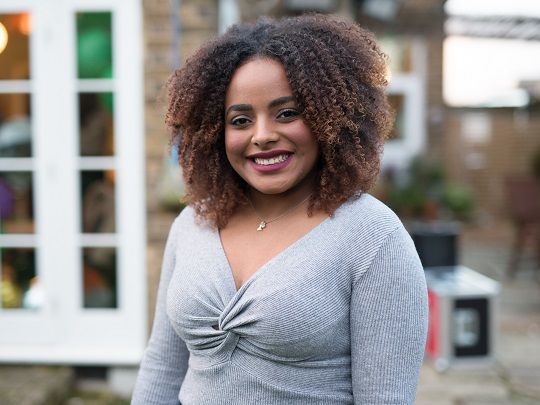
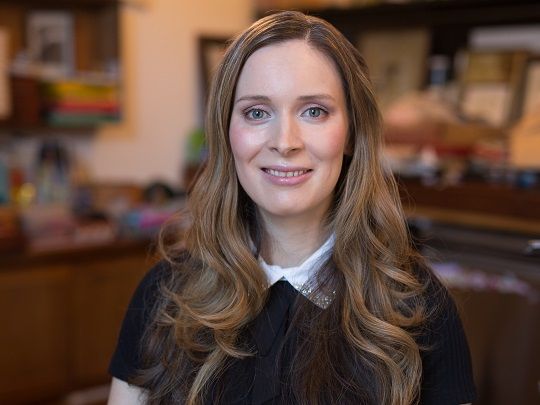
Marina: “make-up has a transformative power”
“Make-up has such a transformative power for how you see yourself and how others see you. I love that you don't even need a lot to make a big difference.
I remember watching my mum using her lipstick, not just for her lips but also as her blush, so it would match. If I had to choose one item of make-up to take to a desert island, it would be lipstick. It’s so multifunctional.
I wouldn’t say I have a signature style, but I always follow the rule of only highlighting one feature with an accent colour or style - either lips or eyes - but never both at the same time.”
Grace: “I just want to look like myself, happy and glowy”
“Most of the time, I go for a more ‘natural’ look with very little makeup. I’m 28 and it's only this year that I have started wearing foundation.
If I go out I always go for a red lip, I feel it makes me pop and I feel cool and sexy.
When I got married my mum wanted me to look like Miss Venezuela; she said I should wear fake eyelashes and I would look like an angel. But I just wanted to look like myself, happy and glowy.”
